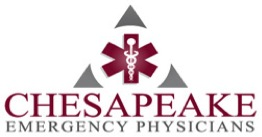Chesapeake Emergency Physicians - Location
224 Great Bridge Blvd,
Chesapeake, VA 23320
OBSERVATION MEDICINE
Patients are kept in the hospital for up to 24 hours for evaluation and treatment as doctors assess the need for inpatient admission. The goal is to avoid hospitalization if the patient’s condition can be treated appropriately and thoroughly within that time period. The types of medical issues CEP cares for in the Emergency Department Observation Unit include chest pain without evidence of a heart attack, asthma, dehydration, mild infections, and painful ailments such as kidney stones.
CHEST PAIN CENTER
Our health-care team is ready to evaluate what has caused a patient’s chest pain. CEP places the patient in the Emergency Observation Unit for cardiac evaluation, which includes heart-rhythm monitoring, repeat laboratory studies, and cardiac stress testing. Stress tests can include treadmill testing, echocardiograms, nuclear stress tests and Cardiac CT studies. Chesapeake Regional Healthcare recently installed a 256Slice CT Scanner . This is the most technologically advanced equipment available and results in more accurate and reliable testing, faster scanning times and less exposure to radiation for our patients. This technology can be used to non –invasively evaluate patient’s coronary arteries to determine presence or absence of blockages that could lead to a heart attack. The Chest Pain Center is accredited by the Society of Chest Pain Centers.
STROKE CARE
Patients are seen by an experienced stroke team that takes every effort to promptly evaluate the patient and consider treatment options. This includes CT scans, laboratory studies, EKGs, stroke-therapist evaluations and medication-management determinations. Chesapeake Regional Healthcare is accredited as a Primary Stroke Center.
CONGESTIVE HEART FAILURE CENTER
Patients are evaluated with a team approach by specialists to determine whether they need to be admitted into the hospital or, after treatment in the Emergency Department can be followed safely and managed as an outpatient. The goal is to meet patients’ treatment needs, including medication management, and to ultimately manage Congestive Heart Failure to help the patient maintain a decent quality of life and avoid unnecessary re-hospitalization. Chesapeake Regional Healthcare has obtained Heart Failure Accreditation.



